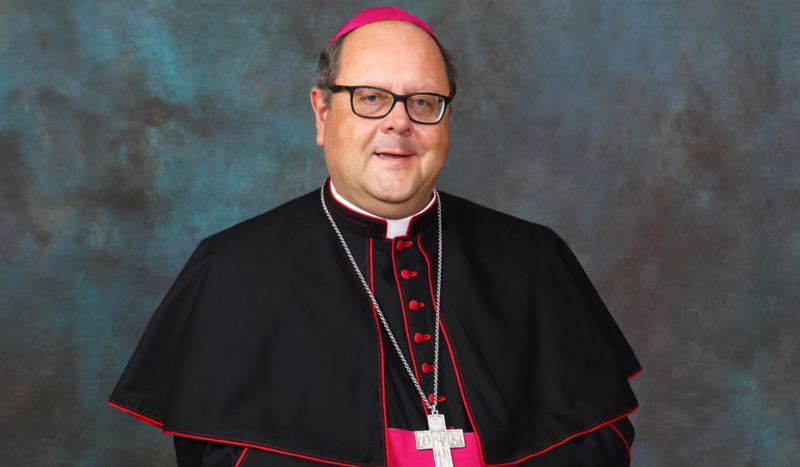
CV NEWS FEED // The Diocese of Cleveland recently implemented a pro-parent policy that affirms Church doctrine on “human sexuality and gender” and rebukes several key tenets of the “transgender” movement.
“The Church, through divine revelation, has been given the gift of knowing that the human person is a unity of both body and soul and that, body and soul, each person is created in God’s image,” the diocese wrote on its website.
“Our bodies, created male and female, are part of God’s intentional design in creation and are, therefore, imbued with meaning and purpose. Catholic institutions, therefore, are called to act and speak in ways that are consistent with and affirming of this divinely revealed truth,” the diocese continued:
In response to societal trends and at the request of church and school leadership, the Catholic Diocese of Cleveland has taken existing guidance and practice in matters of sex and sexuality and developed them into a formal policy.
Since questions of sex, sexuality, and gender identity have become increasingly prevalent in our society, it is our hope that the policy will help to ensure these matters are addressed in a consistent and authentically Catholic manner across our diocesan institutions and diocesan Catholic schools, and that those we serve will have a clear understanding about expectations and accommodations related to those matters.
The policy states:
A person experiencing gender dysphoria or confusion will not be denied admission to an institution or be excluded from an institution’s life and activities simply because he or she is experiencing gender dysphoria or confusion or same-sex attraction. However, those persons who choose to openly express disagreement with Church teaching on matters of sex, sexuality, and /or gender in an inappropriate or scandalous way, or who act in ways contrary to the teachings of the Church, may be subject to restrictions on his or her participation in the life of the institution or, in appropriate cases, to disciplinary action, both for that person’s own good and/or the good of others.
In order to be faithful instruments of Christ and His Gospel, Catholic institutions must uphold the truths and principles of Christ as expressed by His Church and seek to accompany those experiencing gender dysphoria and/or gender confusion. Jesus Christ provides the model for walking with those in need, in truth and love, and in every way Catholic institutions must seek to imitate this example.
The policy contains provisions upholding parental rights. “In the case of a person who is a minor, if and when a member of the staff or faculty of an institution becomes aware that such minor is experiencing gender dysphoria or gender confusion, the institution shall, with reasonable promptness, notify such minor’s parents or guardian of that fact.”
The policy also protects children from the use of the false pronouns promoted by the LGBTQ movement. “Only pronouns that accurately reflect a person’s God-given biological sex shall be used when addressing that person,” the policy states.
The policy similarly guards against allowing males into girls’ bathrooms. “When using an institution’s bathrooms or facilities, all persons must use the bathrooms or other facilities that correspond to their God-given biological sex.”
Another portion of the policy directly protects the existence of “single-sex institutions, programs, and activities,” stating:
A person may only be admitted to an institution that is designated as single-sex consistent with his or her God-given biological sex. A person may only participate in institutional activities (whether curricular or extracurricular, athletics, ministries, or other programs) that are designated as single-sex consistent with his or her God-given biological sex.
This provision serves, in part, to prevent males from competing on girls’ and women’s sports teams associated with the diocese and its schools.
Finally, the measure strongly prohibits any form of gender “transitions:”
No person may engage in so-called social transitions, surgeries, or medical treatments that seek to ”transition” the person to a sex or gender inconsistent with his or her God-given biological sex. This includes, but is not limited to, puberty blockers prescribed or taken to delay puberty in those diagnosed with gender dysphoria, and hormone and surgical treatments to “feminize” a biological male or “masculinize” a biological female.
Cleveland.com noted that “the policy applies to all offices, parishes, parish schools and diocesan schools, as well as their employees, personnel, volunteers, students and youth participating in parish or institutional faith formation.”
A letter from Bishop Edward C. Malesic announced the new policy on August 30. The bishop acknowledged the “polarizing and tense time in our culture.”
“Many feel lost and troubled about who they are and their purpose in the world,” he wrote:
This search for life’s meaning and purpose touches the core of who we are as human beings. As Catholic Christians, we know that “God has formed us for Himself, and our hearts are restless until we rest in Him.” Ultimately, we long to be united with our Creator.
Malesic reinforced that “efforts in parish ministry and our schools should include holistic formation and moral development of body and spirit.”
“The human person, created in the image and likeness of God, deserves the utmost respect, for each person’s dignity is inherent and inviolable,” he concluded. “Let’s keep this fundamental principle at heart, as we move forward and engage in our various ministries.”

